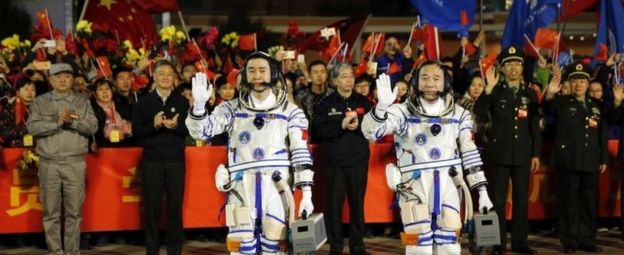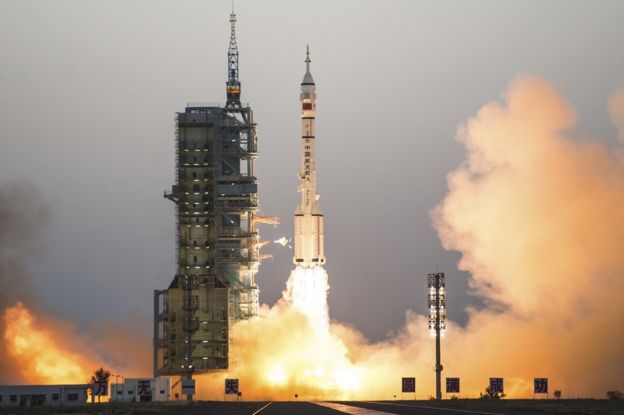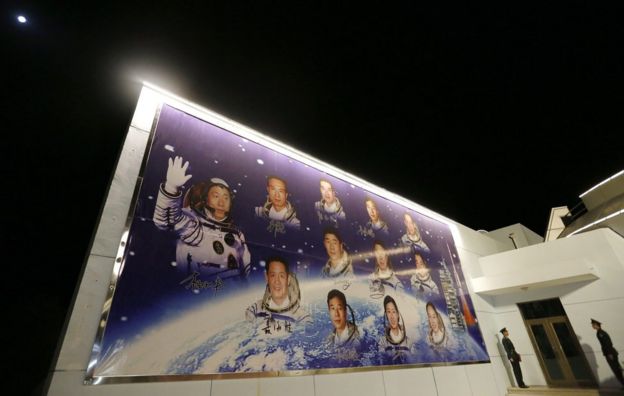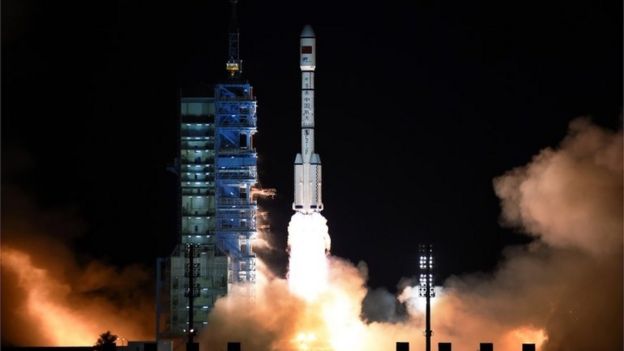China has launched two men into orbit in a project designed to develop its ability to explore space.
The astronauts took off from the Jiuquan Satellite Launch Centre in northern China.
They will dock with the experimental Tiangong 2 space lab and spend 30 days there, the longest stay in space by Chinese astronauts.
This and previous launches are seen as pointers to possible crewed missions to the Moon or Mars.
An earlier Tiangong – or Heavenly Palace – space station was decommissioned earlier this year after docking with three rockets.
The astronauts on this latest mission were Jing Haipeng, 49, who has already been to space twice, and 37-year-old Chen Dong.
The BBC’s Stephen McDonell was at the Jiuquan Satellite Launch Centre to witness the take-off.
 Image copyrightAPImage captionThe astronauts Jin Haipeng (R) and Chen Dong will spend 30 days in space
Image copyrightAPImage captionThe astronauts Jin Haipeng (R) and Chen Dong will spend 30 days in space
From a remote launching station in Inner Mongolia I’m watching as a rocket tears through the sky. It will take the astronauts about two days to reach the orbiting laboratory where they will live for a month.
While on board the pair will carry out experiments including an examination of plant growth in space. They’ll also use ultrasound equipment to test their own bodies.
This mission is a source of considerable national pride here. So much so that even the foreign media has been allowed into this military base to view the launch.
The spacecraft, Shenzhou-11, took off from at 07:30 local time on Monday (23:30 GMT), lifted by a Long March-2F rocket.
The astronauts will spend the next month conducting experiments on the Tiangong 2.
China in space
in numbers
$2.2bn
China’s estimated annual spending on space programmes
- 181 Chinese satellites in space
- 11 Chinese people have travelled in space – often known as taikonauts
- 2003 The year of China’s first crewed space mission
- 2020 The year China plans its own space station
EPA






